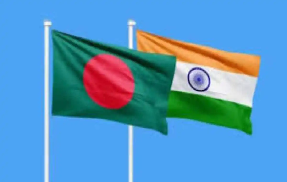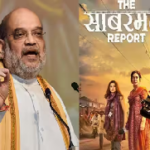Pramode Mallik
After hitting the rock-bottom, India-Bangladesh relations refuse to improve thanks to the recalcitrant approach of both governments, which have bowed down to the popular demands of their masses rather than any attempt to work on mending the fast-deteriorating ties.
In a recent development that may further worsen the bilateral ties, the office of the Assistant Bangladesh High Commissioner in Agartala was attacked.
Bangladesh Mission Vandalised
The Ministry of External Affairs of India regretted the vandalism while the Foreign Office of Bangladesh condemned it and accused the local police of not doing enough to contain the demonstration that snowballed into a violent incident.
Earlier India condemned the attacks on Hindus in Bangladesh and asked Dhaka to ensure the safety of all of its minorities. The Muhammad Yunus-led interim government responded by assuring of taking stern steps to curb violence, the Chief Advisor of the government visited the famous Dhakeshwari Temple in the capital and met its chief priest to assure him of safety. However, the reports of sporadic incidents of violence continued to hog the headlines across the country.
Sheikh Hasina: Cause Of Tension?
While New Delhi is concerned at the escalating violence against Hindus in its neighbouring country, Dhaka is upset with the presence of its ex-Prime Minister Sheikh Hasina in the Indian capital, from where she issued a statement questioning the government in her country.
Yunus government has said that it would put pressure on India for extradition of Sheikh Hasina, who can be put on trial in the International Criminal Court for violation of human rights and committing crimes against humanity.
Bilateral Ties Under Pressure Of Populism
Political observers are upset with the fact that none of the two governments has ever tried to stop the bilateral relations from further deterioration. They appear to be under the constant and increasing pressure of the conservative and fundamentalist elements in the country and even in their own establishment.
The anti-India sentiment is running high in Bangladesh partly because New Delhi is considered as the rock of support, and Hasina is immensely unpopular among the masses. India is held responsible for her misdeeds.
Do Islamists Control Bangladesh?
Political observers believe the movement against the Sheikh Hasina government that began against the reservation for “Muktir Joddha” ( (Freedom Fighters) and their descendants was soon hijacked by the Islamist forces.
The fundamentalist Islamist forces are considered to be controlling the entire government and the system.
Some of the people are demanding to amend the Constitution and removal the words “secular” and “Bangla Nationalism”, besides removing the references to Sheikh Mujib-ur-Rehman in the war of freedom from Pakistan in 1971.
Some went to the extent of demanding to change the national anthem “Aamar Sonar Bangla” as it was composed by Rabindra Nath Tagore, an Indian, and a Hindu.
Bangladesh Coming Close To Pakistan?
Political observers are also shocked by the newly found love and affinity for Pakistan, the country that killed more than 30 lakh Bangladeshis in the war. More than one crore people were made homeless and most of them came to the nighbouring country of India.
The Dhaka University, from where the entire movement for the liberation of the then East Pakistan began, recently celebrated the birthday of Muhammad Ali Jinnah. It was the first such a celebration in Bangladesh.
‘Ekushe February’ Movement
It was Jinnah who visited East Pakistan in 1948, declared Bengali as the language of Hindus and said in the most unequivocal terms that the people must learn and use Urdu, the official language of Pakistan. It was the Dhaka University, where the Language Movement began in 1952 and on February 21, police opened fire, killing 29 people, including six students.
However, Dhaka University recently welcomed a delegation of students and scholars from Pakistan. A ship came from Pakistan and docked at the Chittagong Port, the first such an incident since 1971.
India Not Doing Enough?
On the other hand, the political observers believe, India has not done enough to check the deterioration in the bilateral relations. No talks have been held at a higher level, PM Modi did not meet Muhammad Yunus at the sidelines of the UN in New York.
Where the bilateral ties will go from now? Will it deteriorate further or will the two governments sit together?



